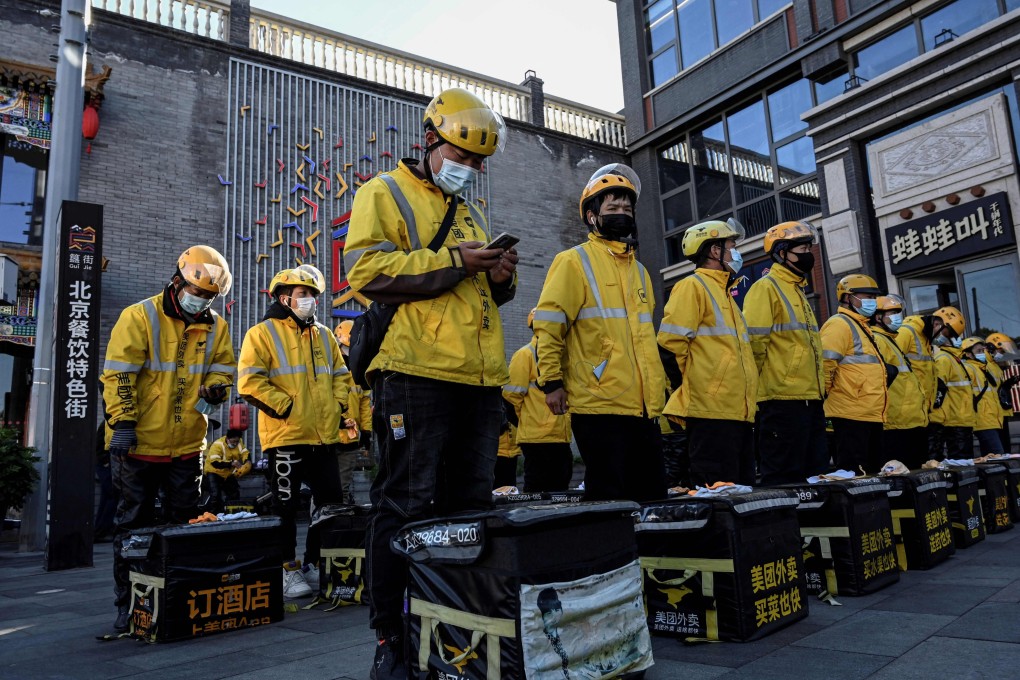Beijing lectures Alibaba, Tencent, other Big Tech firms on gig workers’ rights despite progress from last year
- Four government agencies met with 11 internet platforms to tell them to do more to help gig workers like food delivery personnel and ride-hailing drivers
- Beijing issued new guidelines last year seeking to protect workers in ‘new employment forms’ and addressing issues such as income and work safety

At a meeting held by four government agencies, the companies were instructed to “have political, ideological and actionable consciousness of” gig workers, according to a statement from the Ministry of Human Resources and Social Security (MHRSS) released on Friday. The statement noted progress the companies have made in implementing new rules on worker rights, but concluded that they could do more.
In addition to the MHRSS, the Ministry of Transport, State Administration for Market Regulation (SAMR) and All-China Federation of Trade Unions were involved in what the statement called “administrative instruction”.
The platforms shall “deeply understand the workers’ needs, increase the supervision of employment partners’ protection of their rights, keep improving algorithms and labour rules on the platforms and improve the institutional mechanism” for protecting their rights and interests, the authorities said.